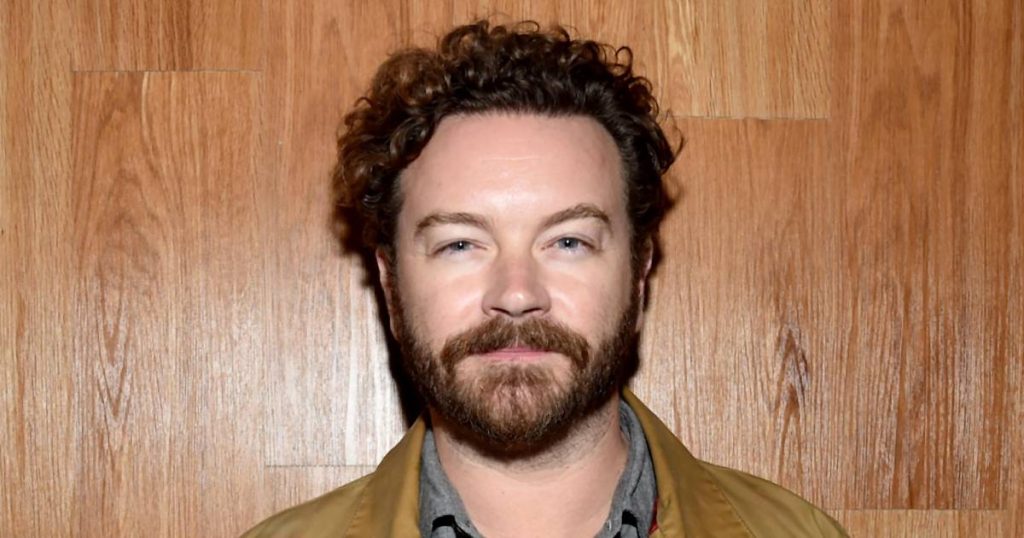Danny Masterson’s Conviction and Appeal: A Deep Dive into the Legal Battle
Danny Masterson, an actor known for his roles in "That ’70s Show" and "The Ranch," was convicted of two counts of rape in 2023 and sentenced to 30 years to life in prison. He has maintained his innocence throughout the legal proceedings and, through his attorney, Cliff Gardner, has filed a comprehensive appeal challenging the conviction. The appeal, detailed in a 246-page opening brief, alleges several significant errors that Gardner claims violated Masterson’s fundamental rights to a fair trial and impartial jury. The appeal forms the cornerstone of Masterson’s fight to overturn the conviction and represents a multi-pronged legal strategy. This appeal is slated to be followed by a habeas corpus petition, further challenging the validity of the trial process. This multifaceted legal approach underlines the seriousness of Masterson’s challenge and his commitment to proving his innocence.
The core of Masterson’s appeal centers on two key arguments. Firstly, Gardner contends that the trial judge made numerous erroneous rulings that prejudiced the jury against Masterson, effectively skewing their interpretation of the evidence. This argument suggests that the judge’s decisions, both large and small, cumulatively created an unfair environment for the defendant, ultimately influencing the jury’s verdict. Secondly, the appeal asserts that a substantial body of exculpatory evidence, evidence that could potentially clear Masterson, was withheld from the jury. This claim raises questions about the completeness of the information presented during the trial and the potential impact this missing evidence could have had on the jury’s deliberations. The combination of these two arguments forms the foundation of Masterson’s appeal, painting a picture of a trial marred by judicial bias and incomplete evidence.
The accusations against Masterson stem from allegations made by four women in 2017, who claimed he sexually assaulted them in the early 2000s. A fifth woman subsequently came forward with similar allegations. These accusations led to Masterson’s arrest and eventual trial. The initial trial in 2022 resulted in a mistrial, followed by a second trial in 2023, which culminated in his conviction on two counts of rape. Masterson’s legal team has consistently maintained his innocence throughout the process, emphasizing that the accusations are unfounded. The case has garnered significant media attention, adding to the complexity and scrutiny of the legal proceedings.
The appeal process is lengthy and complex, requiring meticulous examination of the trial records and legal arguments. Gardner’s comprehensive brief outlines the specific alleged errors and omissions that occurred during the trial, providing detailed legal reasoning to support the claim that Masterson’s rights were violated. The forthcoming habeas corpus petition will likely delve deeper into specific instances of alleged misconduct and constitutional violations, adding another layer of legal challenge to the conviction. This two-pronged approach reflects a determined effort to exhaust all available legal avenues in pursuit of exoneration. The legal battle highlights the intricacies of the appeals process and the challenges involved in overturning a jury verdict.
Beyond the legal ramifications, the conviction has significantly impacted Masterson’s personal life. His wife, Bijou Phillips, filed for divorce following the sentencing, further complicating an already difficult situation. The couple reached a custody agreement granting Phillips full custody of their daughter. Masterson began serving his sentence at North Kern State Prison before being transferred to California Men’s Colony. He is not eligible for parole until 2042. These personal developments underscore the far-reaching consequences of the conviction and the toll it has taken on Masterson’s life.
The appeal marks a crucial stage in Masterson’s legal fight. The outcome of the appeal and the subsequent habeas corpus petition will determine whether the conviction stands or if Masterson is granted a new trial. The legal arguments presented by his attorney, focusing on alleged judicial errors and withheld evidence, form the crux of his defense. The case continues to attract considerable public attention, highlighting the complexities of the legal system and the often-protracted nature of appeals processes. The eventual outcome will have a profound impact on Masterson’s future and could potentially reshape the narrative surrounding the accusations against him. As the legal proceedings unfold, the focus remains on the meticulous examination of the trial record and the validity of the arguments presented by both sides.

